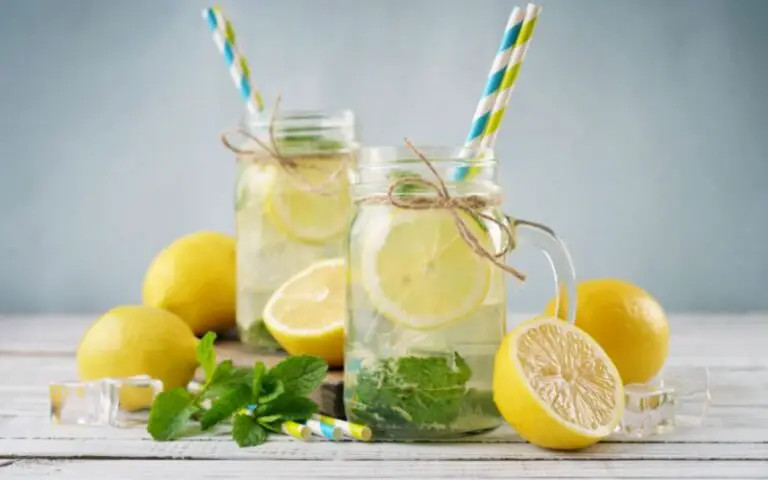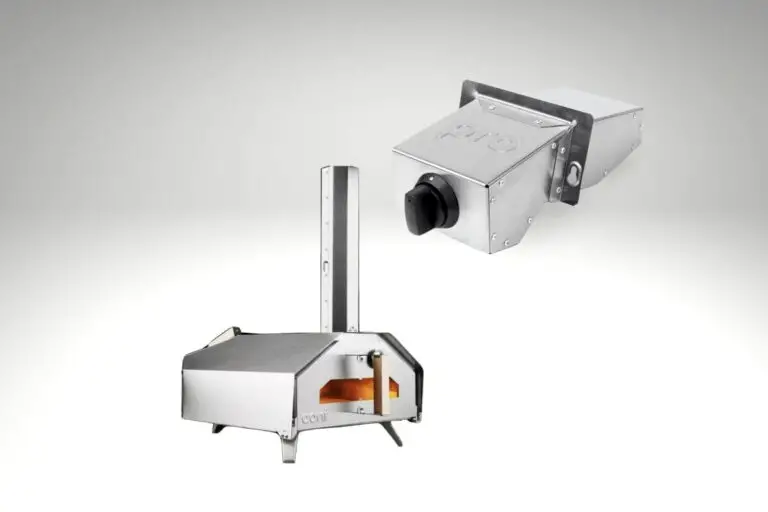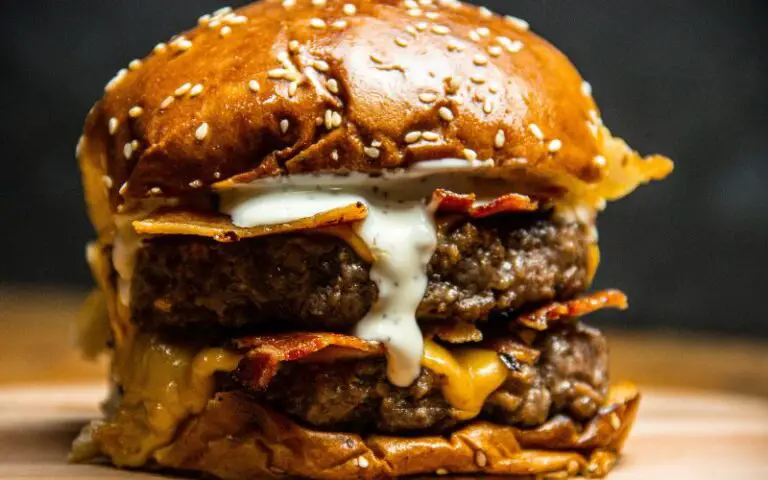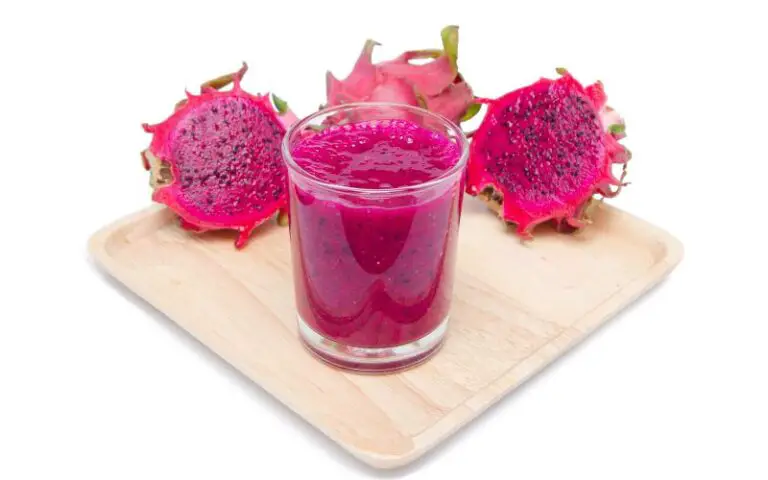How Long Does It Take For Juice To Freeze?
Last updated on October 26th, 2022 at 05:19 pm
Occasionally, after going through tons of activities, you may feel like taking chilled juice to stay refreshed and hydrated.
It might be unpleasant if the juice is not cold enough to taste during the hotter seasons.
Therefore, you may consider refrigerating your juice earlier than usual. But how long does it take for the juice to freeze?
Usually, it takes between two to four hours for the juice to freeze because certain freezers are more effective and efficient than others. Further, the liquid’s volume and container will also impact how long it takes to freeze. In addition, the fruit juice’s freezing point also affects how long it takes for the juice to freeze.
How Long Does It Take Orange Juice to Freeze?
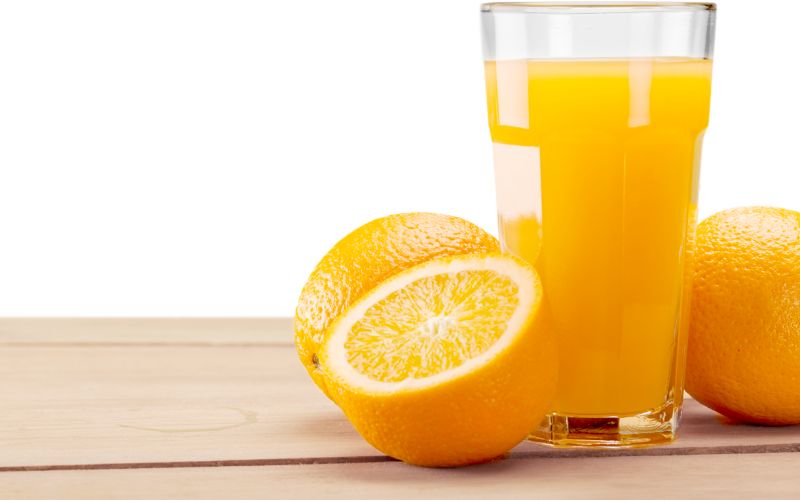
Orange juice will take two to 12 hours to freeze. The exact time it takes to freeze mostly depends on the container used.
The container density is directly proportional to the freezing time of the orange juice.
For example, frozen orange juice in glass bottles takes six hours to freeze. Thus, the higher the volume of the juice, the more time it needs to freeze.
How long your orange juice will freeze depends on how cold the freezer is, how much liquid is in the jug, and if the jug is open.
The cooling must be below the freezing point, about 32 degrees Fahrenheit. If all conditions are kept normal, it can take approximately two hours to freeze.
As a guide, you should not fill the vessel with the juice; leave some space at the top to avoid damaging the vessel when the liquid expands.
Materials such as ice trays, Ziploc bags, freezer bags, and mason jars are less risky when packaging the juice for cooling purposes.
It is unwise to store orange juice in the refrigerator for months because it can get spoiled.
There will be a reduction in the nutritional value and flavor of the juice if it stays longer.
How Do I Make My Juice Freeze Quickly?
Standard freezers and less dense smaller-sized containers are the best options to ensure your juice freezes on time.
In the same way, chest and upright freezers are a good fit for this purpose.
Such freezers come with a fast freeze button regulating the appropriate temperature to fasten the cooling process.
Others keep the juice frozen in a mini-deep freeze section where juice can freeze quickly. You can purchase such refrigerators here.
Many factors can affect how fast your juice will freeze. Some of these factors include the container’s size &shape, the juice’s temperature, and the air in your freezer.
Let’s briefly consider these factors and how they influence freezing.
#1. The Temperature of the Juice
Generally, juice tends to freeze faster when cold and in an insulated container.
The effect of this factor is quite clear; the colder the juice, the faster it freezes. If the juice is a little hot, the freezing process will take longer than it should.
#2. The Size and Shape of the Container
The container size also significantly affects how quickly your juice will freeze.
The larger the container, the more liquid there is to cool down, so it takes longer to freeze. Also, the quantity of the juice in its container matters a lot.
For example, if you are using a small container that is not full, it will take less time to freeze.
More so, if the freezer environment has low humidity, the juice will freeze faster than if you had stored it at room temperature or in a warmer environment.
Besides the temperature of the juice & the size of its container, whether or not you stir the mixture can affect the freezing.
You see, stirring the juice will introduce air bubbles. Consequently, there’ll be less liquid in contact with ice so the freezing time will increase.
You should divide large volumes of juice into smaller vessels for more freezing efficiency.
This action will hasten the freezing process; the ice chest will reach the freezing point in no time.
Also, use freezer bags instead of gallons because the bags will freeze faster than the gallons.
Can Juice Freeze in Plastic Bottles?
Juice can freeze in a plastic bottle. Storing juice is safe and convenient for plastic bottles.
The bottles should be airtight and filled to the brim to avoid bacterial infection. PET plastic bottles are the best recommendation.
Many now opt for plastic containers rather than glass to improve time efficiency in freezing.
Glass bottles are also good if you avoid using plastics in your home. Still, let’s consider the advantages and disadvantages of using plastic bottles for freezing juice.
#1. Pros Of Using Plastic Bottles
Below are the advantages of using plastic bottles over glass bottles.
#1. It Is Expandable
Plastic bottles can tolerate the expansion of liquids because of their resilient nature.
However, glass bottles will crack and shatter if liquids expand. Although some plastic bottles might expand and might not be able to stand erect, the liquid content is still safe and intact.
#2. It is Cheap
The cost of production of plastic is less than that of glass. Therefore, plastic bottles are cheaper than glass bottles.
On Average, a plastic bottle costs one to two dollars. Meanwhile, glass bottles average, cost four to ten dollars.
#2. Cons of Using Plastic Bottles
Despite the pros of using plastic bottles, a few downsides still exist, thus keeping them in mind.
#1. Health Risk From Acidic Juice
Some fruit juice, such as cranberry juice, possesses high acidic contents, and as a result, concentrated acids could react with the plastic, gradually forming new harmful chemicals.
This reaction can cause cancer, fertility problems, and numerous other infections.
#2. It is Partially Airtight
When bacteria get into the fruit juice, it might smell, go bad and possibly infect bacteria to the consumer.
Furthermore, many plastic bottle caps are not airtight. They might still require nylon or polyethylene leathers before being properly covered.
You can store your juice in plastic bottles up to the freezing point. But likewise, note that as much as they’re a good fit, there exist a few downsides, especially when compared to glass bottles.
Below is a summarised tabular comparison between the two bottles.
| Plastic bottles | Glass bottles |
|---|---|
| It is elastic and can resist expansion. | It is brittle and will break if liquid expands to an extent. |
| It can react with acidic juice | It is chemically inert |
| It is partially airtight | It is completely airtight |
What Temperature Does Fruit Juice Freeze At?
Different juices freeze at different temperatures, depending on the major constituent ingredient.
Here are some common examples of fruit juices and the temperature at which they freeze.
| Fruit juice | Freezing temperatures |
|---|---|
| Orange juice | 15-35 degrees Fahrenheit |
| Apple juice | 17.6 degrees Fahrenheit |
| Pineapple juice | 28 degrees Fahrenheit |
| Grape juice | 25.94 degrees Fahrenheit |
How Long Does It Take Juice to Slush?
It depends on the method used in making the juice slush. Some individuals use slushy machines, which take about an hour.
Slush should be examined in freezers to obtain the desired result every 30 minutes. Refrigerators take two to four houses to make juice slush.
A cold juice will not slush within the same time interval as a warm one.
Therefore, the temperature of the juice will affect the time it takes to slush. The amount of sugar in the juice also affects how long it takes to slush.
Final Thoughts
At 32 degrees Fahrenheit, your juice will be frozen and can be made into slush. It takes approximately two to four hours for the juice to freeze.
Further, your juice will freeze faster with standard freezers and correct size containers.
You can use glassless and plastic bottles to package fruit juices, but I recommend using plastic containers.
Nevertheless, fruit juice is more nutritional when fresh and might get spoilt if kept for too long.


